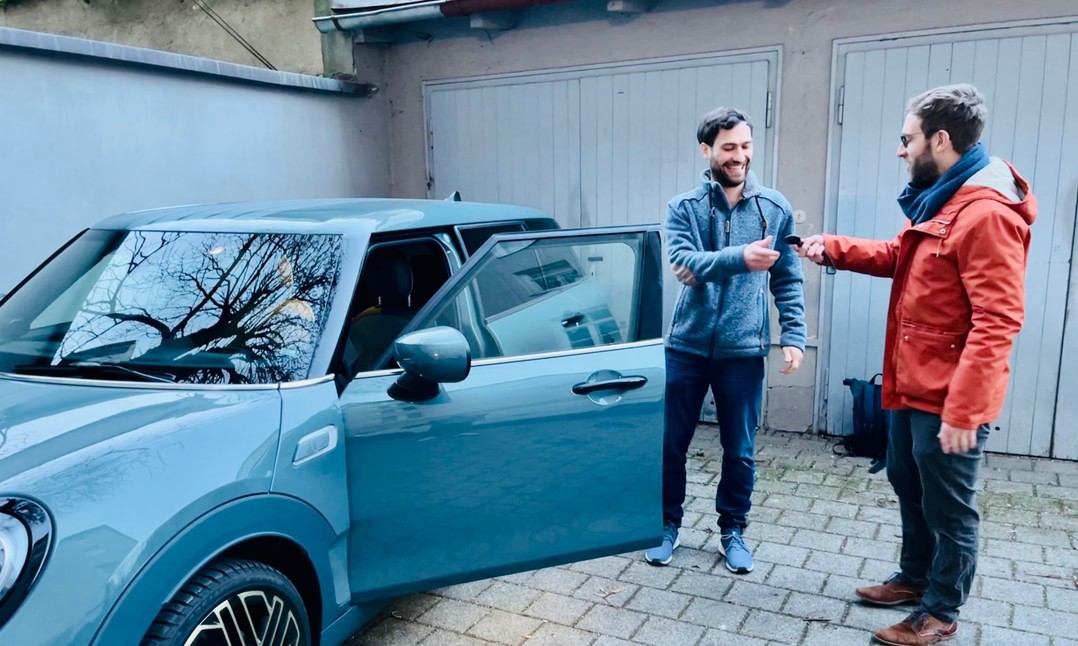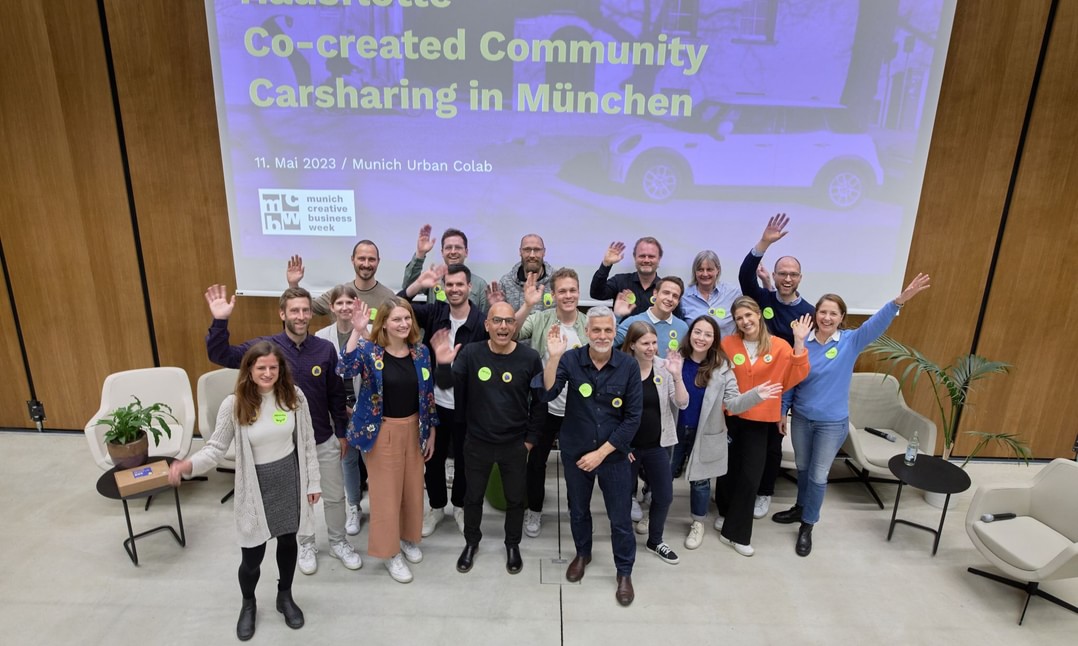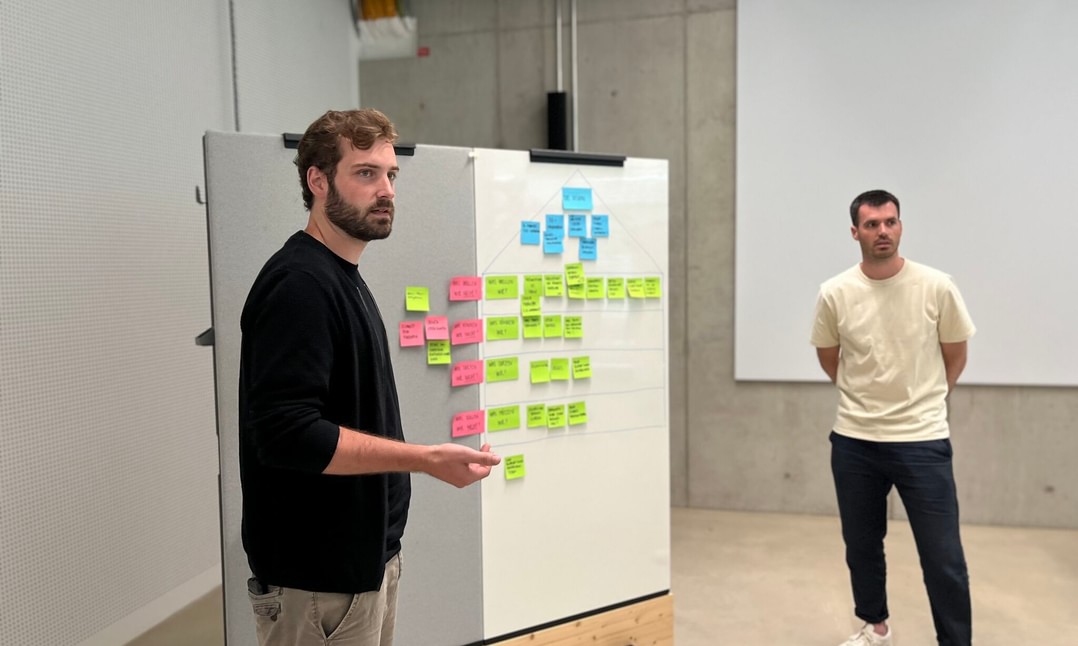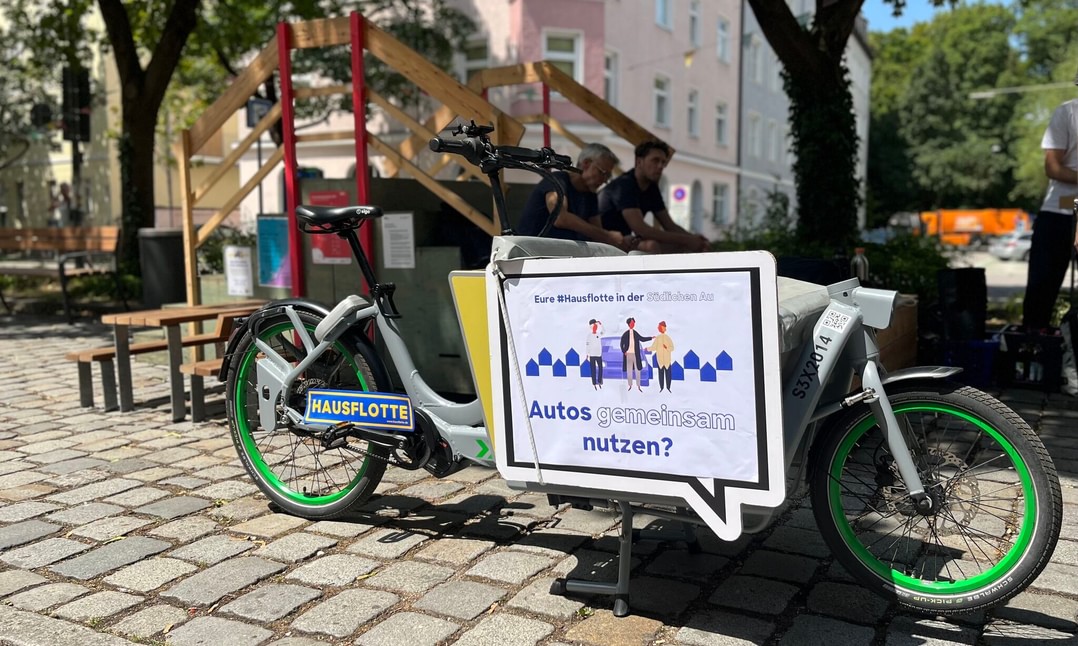In a world where sustainability and efficient use of resources are becoming increasingly important, car sharing has become an attractive alternative to owning a car, especially in urban areas. However, in contrast to commercial car sharing from providers such as Miles, Share Now & Co, private car sharing is still not very widespread. This is despite the fact that it makes sense to share a car with others: According to the German Federal Motor Transport Authority, around 43.3 million cars are registered to private owners in Germany (source: Kraftfahrt-Bundesamt; January 2022) - so the private stock is immense. In addition, the majority of these cars spend most of their lives in parking lots, an average of 23 hours a day in large cities.
This is why the Digital Hub Mobility, which develops innovations for sustainable mobility in livable spaces and is part of the ecosystem in the Munich Urban Colab, launched the "Hausflotte" pilot project in November 2022. The goal is to test private car sharing in residential communities and neighborhoods, understand barriers to entry and identify future potential.
Why should you share your car with others? How is a "Hausflotte" (house fleet) organized? And what is the role of the City of Munich's Department of Mobility and the Munich Transport Authority (Münchner Verkehrsgesellschaft - MVG) in this project?
What are the benefits of private car sharing?
One of the most important arguments is the positive impact on the environment. By having several people use an existing car, the number of vehicles on the streets is reduced, which in turn reduces CO2 emissions. In addition, better utilization creates more free space, since each parked car takes up ten or more square meters of unused. Sharing your own car therefore contributes to a livable city and plays an important role in the mobility transition.
But it is also about your own wallet: car owners can reduce their costs without much effort, for example by avoiding damage caused by standing still. Stiff brakes, porous rubber or a dead battery are some of the most common - and costly - problems with unused cars. As in other areas of the "sharing economy", there is of course a social component: private car sharing brings people together who might otherwise never meet. It reduces anonymity and strengthens the cohesiveness of a neighborhood or community.
What is a Hausflotte and how is it organized?
Many of the advantages are obvious, but private car sharing has not yet taken off - not even in Munich. Current figures prove this: Around 752,000 cars in Munich (source: Zimas, March 31, 2023) are unused 96% of the time (source: Umweltbundesamt; 2022), while 60% of car owners are objectively not dependent on their cars (source: BMW AG / KIT, 2020). How can a Hausflotte change that?
Neighbors, friends or an entire household get together to form a Hausflotte. At least one person makes a car available to the other members of the Hausflotte. A fair rental price - for example, per kilometer, hour or day - is determined together. In the co-innovation project of the Digital Hub Mobility and its project partners, three house communities in Munich each shared a car from November to May 2023. The composition and size of the Hausflotte varied greatly: from a small fleet consisting of two neighbors to a group of four people who replaced three private cars with a "community car" - provided free of charge by MINI for four weeks. The households first organized the use of the car via a shared digital calendar and SMS, and the car keys were handed over manually. In the second phase, they tested a digital solution developed by the project team together with start-ups ANYMOVE and flinkey: Using a smartphone app, people could now book the shared cars and open them digitally, without a physical key.

What are the results of the first pilot?
The first phase of the Hausflotte project has shown that non-commercial sharing of private cars is possible and that there is a fundamental openness. Participants cited physical proximity and mutual trust as important basic requirements - because, unlike commercial car sharing, people know each other and practically live next door to each other. "That makes it so easy and at the same time so pleasant for me," says participant Anke from the Schwanthalerhöhe district. Many said their personal motivation was the desire to contribute to a change in traffic patterns and to try out new mobility concepts. It is also about reflecting on car use and redefining one's own mobility. "I think it's good if my car is used more. I also like the charitable idea," says Carola from the Hausflotte at Anglerblock in Munich.

Private car sharing is mainly based on idealistic reasons and real incentives are still missing. The ratio of effort to savings is not right. There is no real pressure to share one's own car. "A private car is absurdly expensive in relation to its use, but many people still take it for granted," says Kristin Hegner, Managing Director of Digital Hub Mobility. Scaling with a self-sustaining business model is also difficult in the current environment. According to the participants, the biggest barriers to entry are less technical than legal concerns - especially with regard to insurance and taxes.
Why are the City of Munich and MVG so important?
In addition to the project partners BMW Group, Mini, IABG, Designit, Klink, ANYMOVE and flinkey, the Mobility Department of the City of Munich and the MVG were also involved in the pilot project. "The Mobility Department helps us to understand what a city needs in order to integrate innovative solutions into everyday life and the tasks of an administration," says Maximilian Ritz, Senior Service Designer at the Digital Hub Mobility. "As the capital of the state of Munich, it is also extremely important for us to be able to communicate effectively with our citizens. We need this support to make people aware of the project and its benefits". The collaboration is not limited to individual projects, but is a long-term, comprehensive and strategic cooperation - far beyond the ‘Hausflotte’. The MVG, one of Munich's largest employers and represented with its own mobility laboratory (Mobiltätslabor) in the Munich Urban Colab, also supports the Hausflotte with its expertise in sustainable and multimodal mobility. "Access to this knowledge is incredibly valuable to us," explains Ritz.
What's next for the Hausflotte?
With the knowledge gained and an ambitious goal, the Digital Hub Mobility launched the next phase of the project in mid-September 2023: By the end of the year, the team wants to have more than 50 Hausflotten on the road in Munich and the surrounding area. To achieve this, the first step was to simplify the application process for interested parties - with the help of a guide, anyone can set up their own Hausflotte in just 4 steps - and in the future, insurance partners will also be involved to quickly and easily remove legal concerns as a barrier to entry. In the first phase of the project, digital solutions in particular made it easier to organize a private fleet. The Digital Hub Mobility will therefore continue to develop the app, hardware and insurance into an integrated product.

"We are also planning to expand the offer beyond cars to include cargo bikes, for example," says Maximilian Ritz. In order to scale up the Hausflotte as a concept in urban neighborhoods, the project managers are turning to multipliers such as cooperatives. Local events and workshops, for example at the Munich real-world laboratory "aqt" of the MCube (Munich Cluster for the future of Mobility in Metropolitan Regions) on Kolumbusstrasse or as part of the IAA in Munich, have been used to discuss ideas and questions and to better understand local needs.

Although the second phase of the project has already started, interested parties can start their own Hausflotte at any time. Partners and start-ups are invited to work with the Digital Hub Mobility to overcome the barriers to private car sharing and create customer-oriented offers. For more information, visit the Hausflotte project page.


